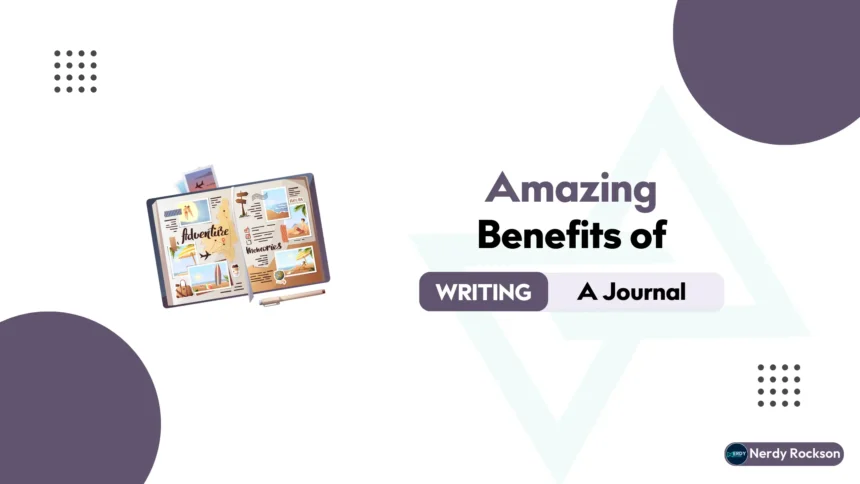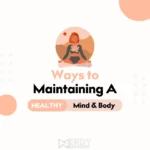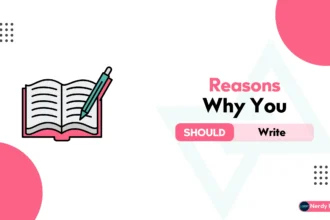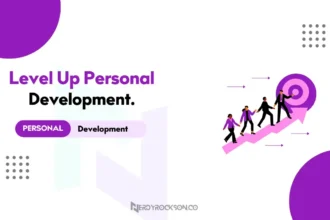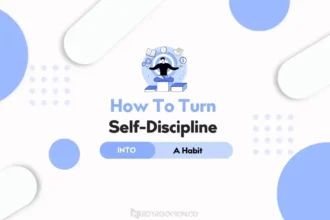Our lives and psyches are jam-packed and full of hidden gems of knowledge and insight. We can learn so much from ourselves, but too often, the most valuable lessons are tucked away deep in our lower consciousness, seemingly just out of reach.
So, how can we access those insights? How can we build a metaphorical bridge connecting our past to our present and our future? How can we soothe and resolve the pain we’ve pushed down deep? How can we make sure that those significant life events that happen every day, emotional struggles, the accomplishment of goals, and lessons learned are documented and accessible to our future selves? How can we unpack our minds and see the big picture of our own lives with sparkling clarity? Well, it’s simpler than you think, and it doesn’t involve a time machine, a psychic, or a hypnotherapist. The answer is journal writing.
We are a culture obsessed with chronicling our own lives. We post photograph after photograph on Instagram and Facebook; We write blurbs about our daily lives on Facebook and Twitter. We track our careers and those of others on LinkedIn. We write and follow blogs, Tumblr, and other social media.
These means of communication are valuable in their own right, but they aren’t always a great tool for self-healing and self-reflection since they too often present an image of who we want to be, not really who we are. When using these media, we don’t (and in many cases, shouldn’t) allow ourselves to be vulnerable to a group of people often made up in large part by casual acquaintances, co-workers, and even rivals.
That’s where journaling comes in. Journal writing gives us a way to organize our thoughts (our real thoughts, not just those witticisms we post on social media sites) and to find meaning in our feelings and experiences. And it is a very effective tool for doing so.
In 2016, Time magazine reported on a new study that suggested that people who journaled for twenty minutes a day about traumatic injuries and the emotions associated with those experiences significantly accelerated the healing of their physical injuries. In the study, a control group, which was instructed to write about the plans for the next day without any mention of feelings, opinions, or beliefs, experienced far less healing (76% versus 42%)[1].
Other studies report similar findings. Indeed, research indicates that emotional or expressive writing can enhance immune function, reduce high blood pressure, promote wound healing, and even decrease the severity of asthma and arthritis symptoms. According to James Pennebaker, a University of Texas at Austin professor who studies the benefits associated with writing,[2] journaling provides healing when its purpose is to externalize your thoughts, view your experiences from a third-person perspective, and alter your relationship with your thoughts and feelings, if needed, rather than to use writing as a way to formulate solutions for problems.
The best part: anyone can journal. There’s no precise form to journaling. You needn’t be a skilled writer or even literate. Visual journaling, through artwork or photographs, for example, is just as effective as journaling using words or sentences. There’s no time requirement for journaling, no strict schedule to follow, no grammar rules to worry about, no filter to limit yourself, and no template that needs to be followed. The only thing you must do to reap the benefits of journaling is actually to journal and to be somewhat consistent with it.
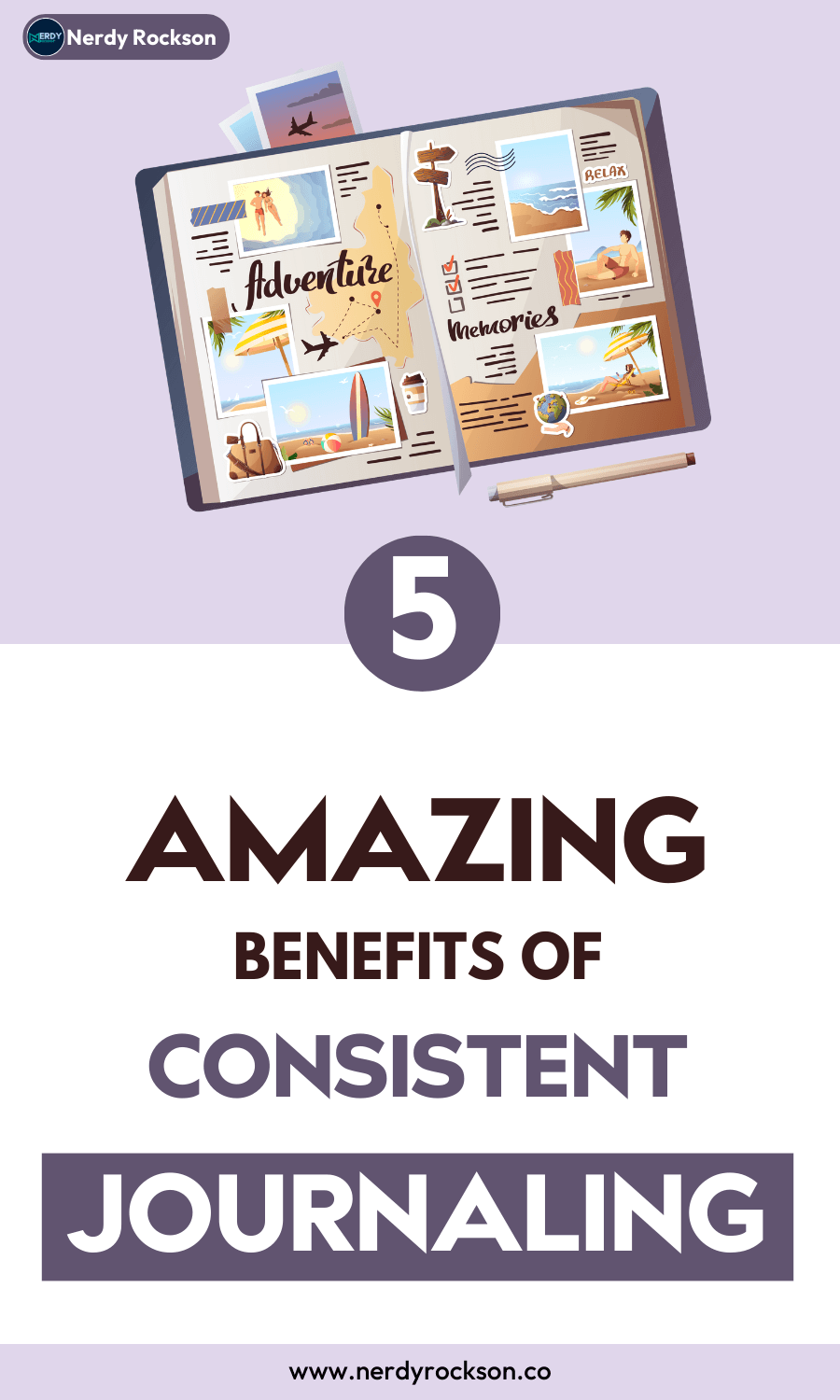

Benefits of Journaling
We briefly covered some of the benefits of journaling in the introduction. Now, we’ll discuss, in more depth, the health, emotional, personal, and professional benefits of journaling. Use the information provided here to inspire you to make journaling a regular practice and to guide your journaling in light of the specific benefits you seek.
1. Emotional Benefits
It should be no surprise to you that journal writing helps you to build a stronger connection with your emotions. When we write honestly and openly about how we feel and why we feel that way, we are better able to sort through the mental clutter that often separates our emotions from our understanding and, therefore, better appreciate ourselves and our emotions.
At the beginning of this article, I mentioned studies that show that writing about traumatic or stressful events boosts one’s physical health and healing. It makes sense, then, that the same habit would also boost our emotional health and well-being. And it’s relatively simple to ensure that we maximize the emotional benefits derived from journaling just expressing our emotions on paper is a great start.
But, while we should certainly aspire to deal with our negative emotions in the pages of our journal, we should also try to avoid falling into the trap of helplessly dwelling on the negative. Don’t use your journal as an excuse to spiral into despair and negativity. Examine your negative feelings. Try to figure out where they have come from.
If there’s something negative in your life that is internal and proves difficult to deal with (for example, negative body image or a recent embarrassment), one great method featured in a study published by the University of Rochester Medical Center [3], involves writing these negative thoughts down and physically discarding them in a garbage can. Believe it or not, the act of throwing these thoughts away appears actually to help remove the thoughts from your mind. Amazing!
Instead of dwelling too much on your negative thoughts and emotions, focus more of your time and space on the positive things in your life. Some days, you’ll have to dig deeper than others to find positive. That’s OK. It’s there, I promise. And don’t forget, “positive” is not black and white. It is a spectrum. So, perhaps, instead of thinking in terms of “positive” and “negative” feelings and experiences, think about “better” and “worse” feelings and experiences, with more time and energy focused on “better.” This practice will soon bring about positive change in your life.
You’ve heard that positive energy attracts more positive energy, and it’s so true. Dealing with your negativity because it’s there, but don’t let it overcome your positivity, even in your journal. Happiness is wanting what you have, not having what you want, and this mentality of focusing on the positive will propel you onto a path of incredible growth and fulfillment.
2. Getting Some Clarity
Sometimes, time flies by so fast that we never get a chance to process the ups and downs of our daily lives. Sometimes, we experience certain problems that seem to plague us again and again. Sometimes, we find ourselves trapped in patterns of harmful behavior.
Sometimes, we even wonder who we are. Journaling is a great way to get perspective out of our experiences and behaviors and to learn from them. It teaches us about ourselves, what motivates us, what makes us happy, what we’re afraid of, what we’re inspired by, what causes us pain. It brings us to our senses. It allows us to observe our lives from a third-party perspective, objectively, almost. It tracks our decision-making processes and the consequences of the choices we make.
For example, imagine that you’re involved in a long-term romantic relationship that no longer feels right. Your partner seems happy enough, and your friends and family have only positive things to say about the relationship, but something is missing from you. You’re miserable, lonely, and confused. It would be easy just to truck along as you have been unhappy and dissatisfied since you have little or no external validation of your doubts about the relationship. After all, every relationship has its ups and downs, and it’s normal not to feel happy all the time, right?
Your partner isn’t complaining; your loved ones are supportive, so why should you be concerned? But a little journal writing will answer some questions for you. You are discontent. You need something more in the relationship, or maybe you just need to leave the relationship. Regardless of what other people think, your journal writing gives you the means to be honest with yourself about what you need in a partnership and whether your current relationship is serving those needs. From there, your writing can provide you with clarity as to the best steps to take, perhaps a serious talk with your partner counseling or even terminating the relationship.
Because of the many benefits journal writing provides, mental clarity is one of the most important. There’s no magic formula to writing in a way that clears away your mental clutter. When you have a problem or a question or a joy or whatever, just write it down. Write about it. Describe the problem or experience, describe the way you feel about it, and write down your thoughts on the subject.
There! You’ve just transferred the problem from your head to your journal, and now you can devote your mental energy to solving the problem, not storing it. You’ve created a meaningful dialogue with yourself (almost as if you were two people rather than one), and, as a result, you’ll have insights that you may have missed otherwise.
Not only that but over time, you will be able to look back on your writing and learn more and more about yourself. You will begin to see themes, habits, and common behaviors. You will better understand your thoughts and emotions; you will finally answer lingering questions. You will be reminded of the reasoning behind certain actions and decisions. In times of sadness or depression, you will remember times of great happiness and remind yourself that things always get better. You will become intimately acquainted with the person you are, and your past self will serve as an amazing counselor to your present self.
3. Tracking Personal Growth
William James, a well-known psychologist and philosopher, once said, “If you can change your mind, you can change your life.” Journaling provides a constant reminder that we are in control of our own lives. Sometimes, life happens so fast that sometimes, we don’t take the time to pause and reflect. We don’t see our progress. We don’t contemplate how far we’ve come. Life becomes about the destination, not the journey, and one day, we look around and have no idea how we got to where we are.
But journaling gives us an amazing gift. It allows us to see how we’ve changed over time. It provides us with a record of mistakes we’ve made and the things we’ve learned from those mistakes. It celebrates our accomplishments and reminds us of how hard we worked to achieve our goals. As long as we journal, no matter where we go in life, we know that we will grow because we will reflect and learn to avoid past mistakes and replicate behaviors that have led us to success. Whether our ultimate objective is to optimize our careers or become a better person (or both), we will eventually see personal growth and have our journals as evidence of that growth.
4. Reducing stress
Another incredible, documented benefit of journaling is the stress relief it can provide. A study published in Psychotherapy Research showed that patients who were instructed to release their emotions through expressive writing had less anxiety, less depression, and greater progress in psychotherapy. The findings were further supported by another study published in Behavior Modification, which also showed that expressive writing correlated with a reduction in anxiety disorder symptoms like stress and depression.
Journaling is an incredible way to relieve stress because it gives you an outlet for your emotions, thoughts, and anxieties and a space that allows you to express yourself honestly and completely without worrying about anyone else’s judgment, nagging, or criticism. You are free to say literally whatever you want, to relish the quiet time by yourself, to scream all the things that you could never say out loud. The beauty of journaling is that once you put your thoughts, anxieties, and feelings down on paper, they lose their power over you. You are in control of them.
Of course, organizing your thoughts in a journal also has the very practical effect of leading to problem-solving and, as a result, reducing situational stress and negativity. To receive maximum stress relief benefits from your journaling practice, be sure to write in detail about your thoughts and feelings related to stressful events (think of your journal as a therapist, if you want) rather than merely using your journal as a log to record events that have happened in your life.
5. Preserving today for the future
The events of your day may seem ordinary and insignificant now, but they are sure to prove both valuable and interesting in the future. If you’ve kept your old journals and diaries that you wrote in as a child or teenager, you know what I mean. When you pull out those old entries and read them, you’ll be reminded of events, feelings, and observations that you had long since forgotten. Some of the entries will bring you joy and nostalgia, some will remind you of painful times, but all of them will remind you of who you, at your essence, are, where you came from, and where you’re going.
Likewise, keeping a journal today will mean that in five years to ten years or thirty years, you will be able to travel back in time and be reminded, with great clarity, of exactly who you were at this moment. You may think that you’ll be able to remember things using your mind alone, and many of the important things, you will, but those little fleeting intricacies that make up so much of our personality, like hopes and dreams and fears, will be long gone.
The details of your life as it is today will be a blur a decade from now, and the things about your daily life that now seem mundane, you will strain to remember. So write them down in your journal. Preserve your today for your future self and maybe even for your children and grandchildren to read. You are not immortal, but your words can be.
Conclusion
Jessamyn West once said, “People who keep journals have life twice.” Your journal gives you a sacred space to reflect on and examine yourself and your life. Anything goes. You can be yourself with abandon, with no filters and no reservations. And if you follow the tips provided in this article, you’ll be well on your way to reaping all the benefits enjoyed by a dedicated journaler.
FAQ
Reference
[1] ^ American Psychological Association: Writing to Heals
[2] ^ Sage Journal: Expressive Writing in Psychological Science
[3] ^ University of Rochester Medical Center: Journaling for Emotional Wellness
